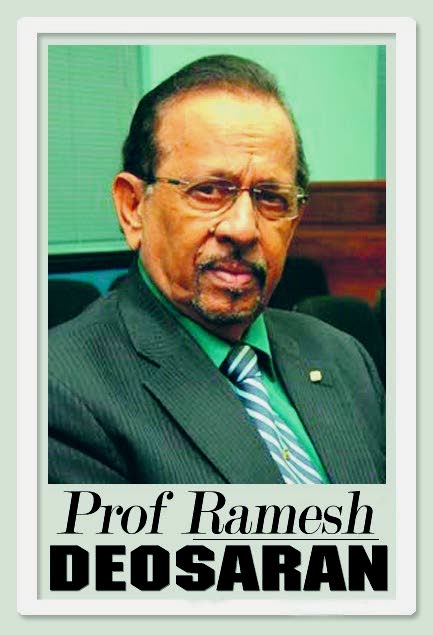How ‘ole people’ suffer

Last Monday she stood in the long social-distanced line outside the bank in St Augustine. The sun was hot, the line moving very slowly.
"That’s ok," this 78-year-old lady said to herself, that was part of covid19.
But, as she explained to me, her troubles and anguish were just beginning. About ten minutes after, glad to be out of the outside heat and well-masked, she was allowed to enter the bank.
On instructions, she joined a shorter line inside, was checked by a roving clerk and directed to a teller. When her turn came, the teller, after some hearing difficulties, said she couldn’t help her, that she should return to the customer service counter.
No one was there. She stood there for over five minutes, looking around for help. She then explained that with her blood-pressure problem, she became stressed and physically uncomfortable.
She said she then raised her voice, asking how long should she wait for service.
The guard told her to stop the noise. While she was explaining her frustration, another clerk came to assist.
She apologised for the noise and, as she admitted, she still left the bank in a bad mood wondering why customer service, especially for “old people,” was not better.
Staffing issues at the bank? That’s not enough reason to provide shoddy service. Use some of the profit. And what about washrooms, especially for senior citizens? Where is the Inspector of Banks? The Consumer Protection and Safety Act (30 of 1985) also applies here.
She added: “Why can’t they put a shed for old people to shelter from the hot sun or rain? We shouldn’t be treated so shabbily.”
I know they are now politely called “senior citizens” rather than “ole people.” But from this lady’s brief complaint, and what I have otherwise heard and read, the name change seems yet to bring the empathy, care and attention promised. In fact, there are many other complaints about “ole people” suffering at business places and government agencies. City Gate stairways are a special “ole-people” nightmare.
Last November, a retired senior public servant citizen hailed me out. He said he had just come from seeking service at a government agency. He explained how he had to join a long line, how his right knee was not so good, how there were so many people but only one clerk to serve, etc. He added that when he, as an unhealthy “old person” at 81, went up to ask for quicker attention, he was bluntly told to go back to the line.
I remember saying to myself that with such problems we must be patient sometimes. But when he reminded me that some years ago he got a national award for distinguished public service, I wondered why someone like him could not be treated better, especially by a government agency. This “ole man” served his country with distinction. And if such citizens could be treated so disrespectfully and callously, what about “ordinary” citizens?” Things are already hard. Covid19 makes it harder. All the more reason for our institutions to treat our vulnerable senior citizens with compassion and care and not push them around like a bunch of “ole people.” Please, have mercy. At both ends – children and seniors – there is gross mistreatment.
After numerous complaints, President Paula-Mae Weekes on December 8, 2018, said: “Our public service has earned an invidious reputation for ineptitude and inefficiency. It is disheartening and alarming.” More recently, an editorial saw it as the “ugly face of the public service.”
My friend’s national award meant nothing. Really now, what do these national awards, from ORTT down, mean? I have read of several citizens, many of them senior citizens, quite physically challenged one way or another, who received national awards for public service, but who have to fight it out from banks to government offices. Is this how it’s supposed to be?
In fact, one has to be very careful when asking for respect, even for national awardees. In this society, the question “who he think he is?” will quickly arise. For humane service, it is not whether you are a senior citizen or with a national award. It is when you have plenty money that you could then buy better service, fuller respect and comfort. That’s our measure of being civilised.

Comments
"How ‘ole people’ suffer"